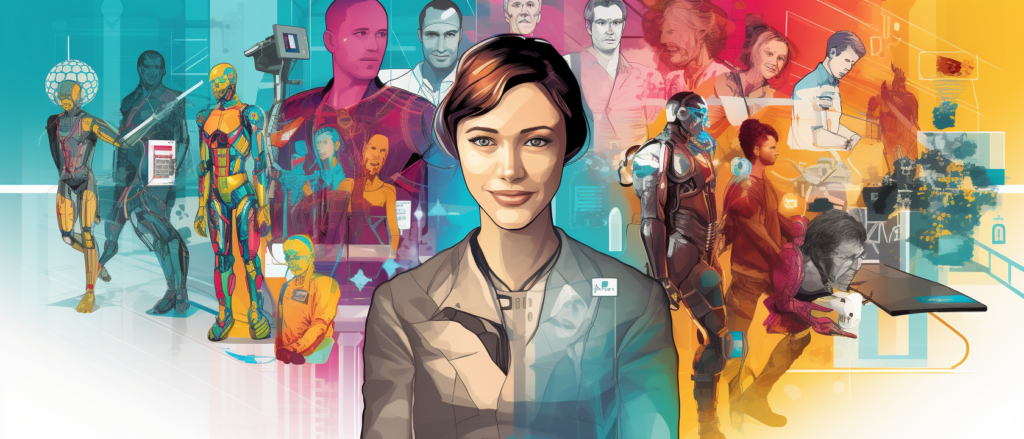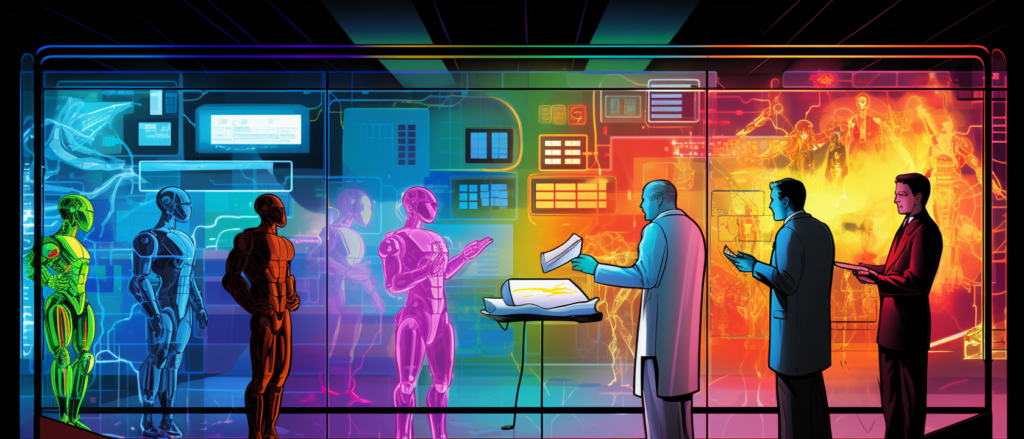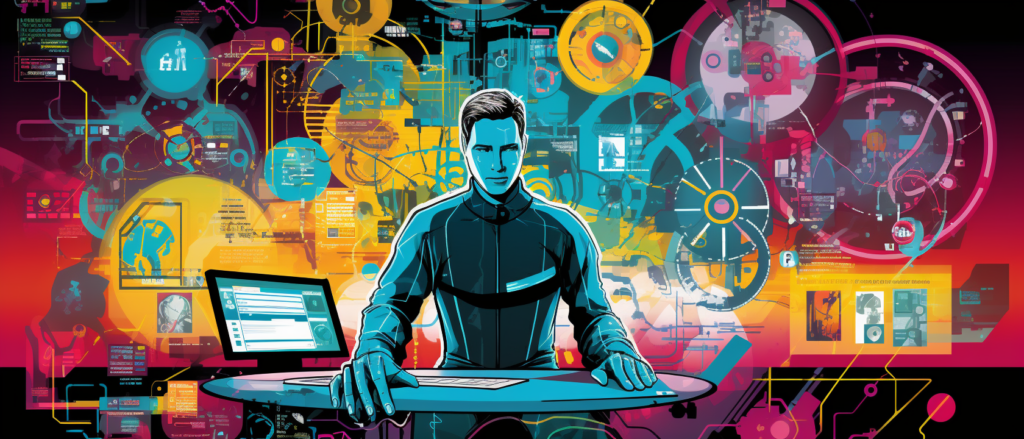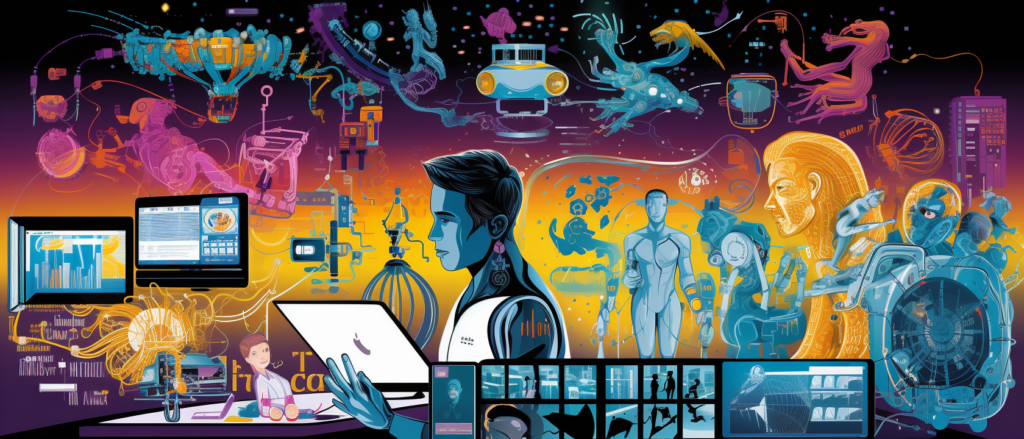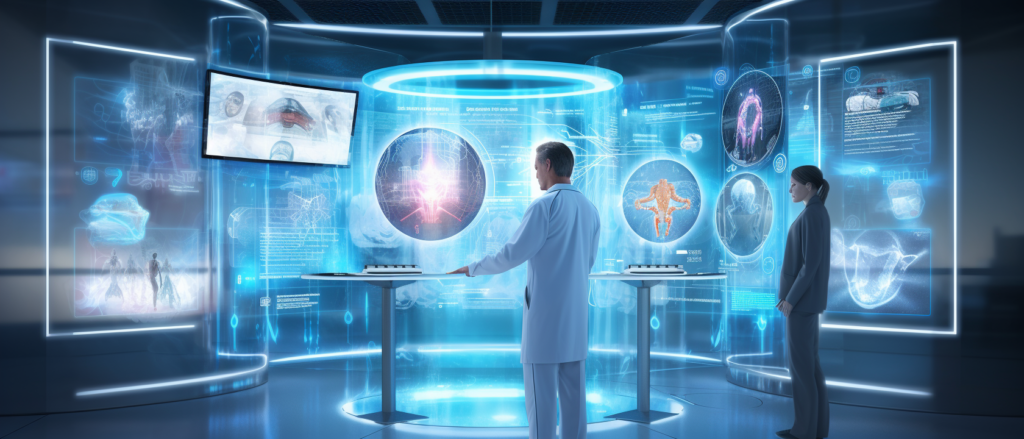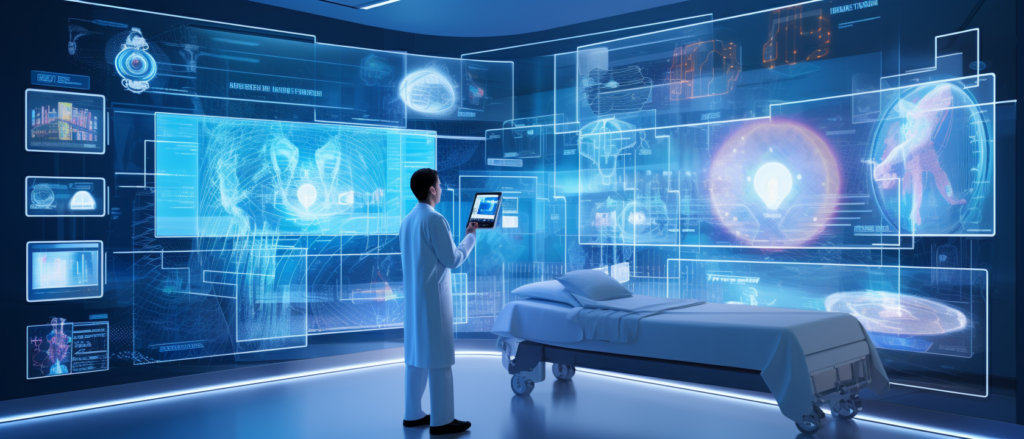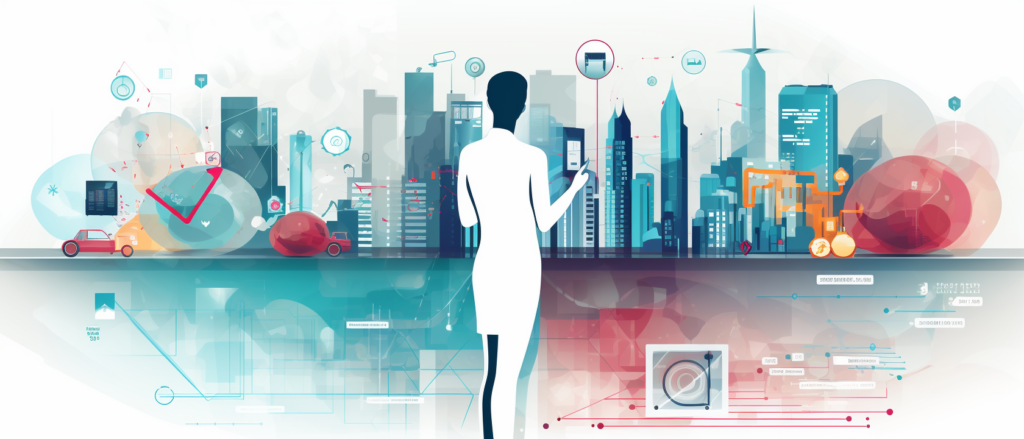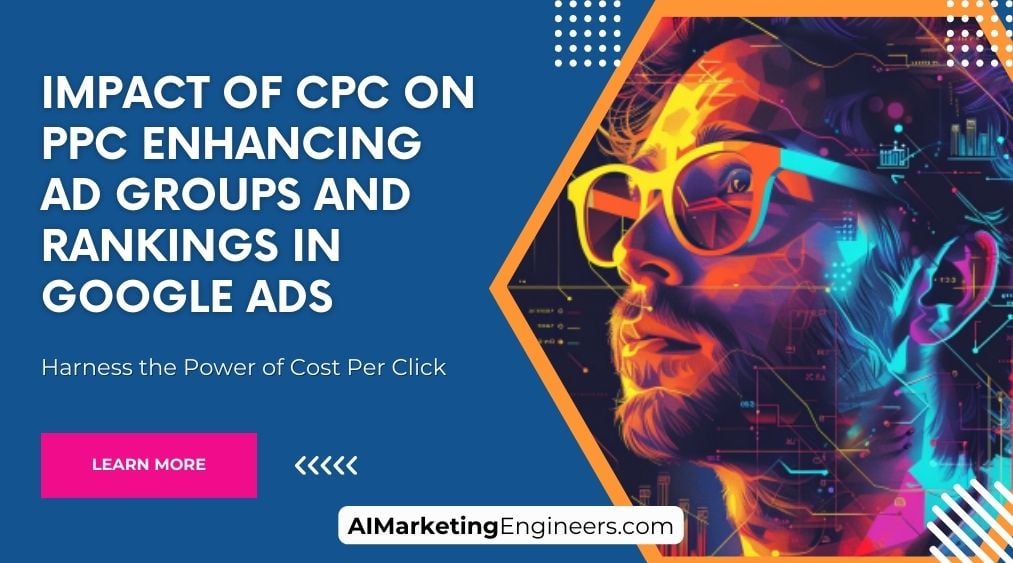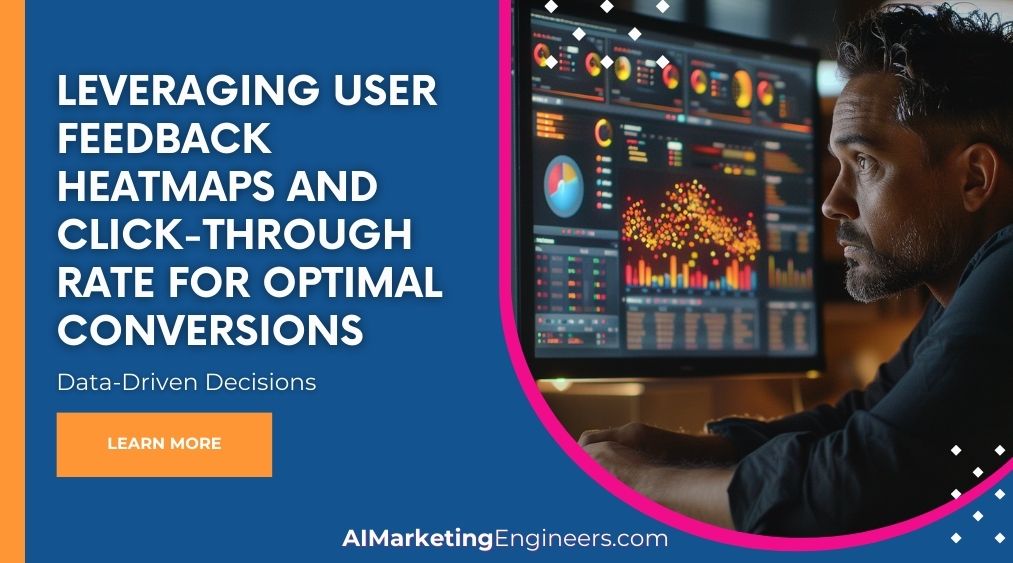Key Takeaways
✅ Personalized Medicine: AI isn't just changing the game; it's personalizing it. Imagine treatments tailored just for you, thanks to AI sifting through your genetic code and health records like a detective solving a puzzle. It's not sci-fi anymore; with AI, personalized medicine is becoming an everyday reality, leading to more effective healthcare catered to your unique needs.
✅ Improved Efficiency and Accuracy: Got a minute? Because that's all AI needs to turn weeks of healthcare admin into a blink-and-you-miss-it task. From medical imaging that spots issues before they become problems to AI robots handling paperwork, healthcare is becoming a well-oiled machine. This isn't just about speed – it's about precision.
✅ Enhanced Medical Research: If you believe that knowledge is power, then AI is your superhero. Imagine diving into oceans of data and surfacing with the pearl of a groundbreaking treatment. AI accelerates medical discovery at a pace we've never seen before, making it possible to unlock new cures and improve lives faster than you can say "innovation."
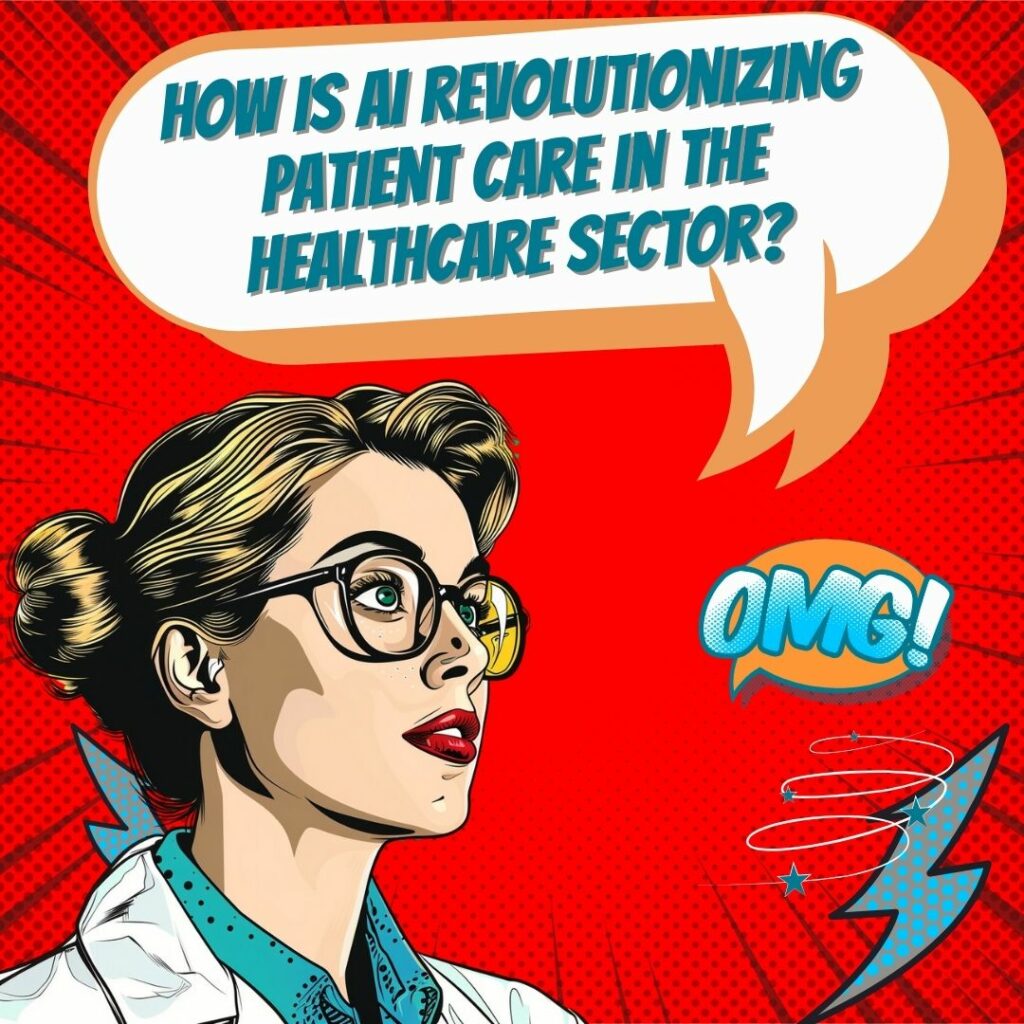
Introduction
Ever wonder what the future of healthcare might look like? With AI at the helm, we're not just looking at incremental changes but a full-blown transformation in patient care and medical research. From virtual health assistants to predictive diagnosis, AI is not just a buzzword; it's the beacon leading us to a smarter, more compassionate healthcare system.
In this article, we'll unravel the threads of how AI is weaving a new tapestry in healthcare. We're talking cutting-edge advances that are personalizing patient treatment and revolutionizing medical research. Curious about AI-powered diagnostics or how AI is reducing medical errors? Buckle up; we’re diving deep. And the promise of a future where disease is detected even before symptoms appear? That's not light years away—it's right around the corner.
So stick with us as we journey into the heart of healthcare's next frontier, armed with innovative solutions, insider knowledge, and everything you need to power up your healthcare strategy. These aren't just ideas; they're actionable insights designed to boost efficiency, ROI, and most importantly, patient outcomes. Ready to peel back the curtain and see what AI in healthcare really means? Let's roll.
Top Statistics
| Statistic | Insight |
|---|---|
| AI Healthcare Market Growth: Projected to reach $67.4 billion by 2027. (Source: Allied Market Research, 2020) | This shows a staggering increase, tuning us into the fact that AI is not just the future—it's the present of healthcare, and it's evolving rapidly. |
| AI in North American Healthcare: More than 40% global market share. (Source: Grand View Research, 2020) | North America is leading the charge, emphasizing its role as a major hub for technological healthcare advancements. Are we seeing a new frontier in patient care right in our backyard? |
| AI Adoption Among Healthcare Providers: 74% believe AI will boost patient care. (Source: Accenture, 2019) | This high level of confidence from healthcare providers is a strong signal that AI has the potential to change lives for the better. But what do you think? Can we trust AI with our health? |
| AI in Medical Imaging: Expected to reach a market value of $3.5 billion by 2027. (Source: Allied Market Research, 2020) | Imagine the implications for early detection and treatment. This isn't just about numbers; it's about years added to lives and countless moments saved from being lost to illness. |
| Physician's View on AI: 63% believe it can reduce burnout by automating tasks. (Source: Stanford Medicine, 2019) | It's not only about patient care, is it? The doctors are hopeful that this smart leap can bring back the human touch in medicine by reducing the grunt work. Can we give our healthcare heroes the breather they deserve? |
Improving Patient Care
Imagine popping into a clinic and getting a health plan tailored just for you. Personalized medicine is on the rise thanks to AI crunching your data to figure out what treatments will work best. AI is also keeping an eagle eye on your treatment, making sure it's doing what it's supposed to, all while slashing the chance of pesky human mistakes. But wait, can a computer really keep you safer? With AI in the mix, doctors are poised to catch errors before they even happen, adding an extra layer of security to your care.
Accelerating Medical Research
Got any idea how new medicines come to be? It's a marathon of experiments and trials, but AI's speeding things up. When it comes to drug discovery, AI is like a brainiac on overdrive, sorting the winners from the duds super fast. Clinical trials too—instead of maybe stumbling around, researchers use AI to streamline the whole thing. And let's not forget about predictive analytics. It's like having a crystal ball showing scientists how to prevent diseases, or manage them better if they do show up.
Enhancing Medical Imaging
Now, when we talk about medical imaging, most folks think of x-rays or MRI pictures as just snapshots. But toss AI into the mix, and those images turn into gold mines of info. AI's not just looking at them; it's analyzing and interpreting like a seasoned pro. Catching a disease early can mean the world of difference, and AI's knack for detail is making early detection a real possibility. For the folks in radiology, this tech means nailing diagnoses with better accuracy and efficiency.
Challenges and Opportunities
Sure, AI's bringing the goods, but it's not all smooth sailing. When we hand over our health data, data privacy and security pop up as big-time concerns. How do we keep all that info safe? And then there's the headache of legal stuff. How do we fit hyper-smart AI into the health systems we've got without stepping on any legal toes? It's tricky, but get it right, and the future's chock-full of opportunities for AI to shake up healthcare.
Case Studies and Success Stories
Don't think it's all theory—AI's already making waves. Hospitals and labs around the world are sharing stories where AI's made treatments better and saved precious research time. Each of these success tales isn't just a pat on the back for tech geeks; it's proof of the positive impact AI has when doctors and computers team up.
Now, imagine where all this is heading. What kind of world could we be living in when AI in healthcare hits its stride? It's up to the whiz kids in tech, the caretakers of our health, and the guardrails of society to come together and navigate this new frontier. Because at the end of the day, it's about keeping us all hale and hearty, with a dose of high-tech help.
AI Marketing Engineers Recommendation
Recommendation 1: Integrate AI to Enhance Patient Experience: Start by implementing AI chatbots on your hospital's website or in your medical app. Why not make it easy for patients to get answers to their health queries at any time of the day? Plus, these AI buddies can help schedule appointments and remind folks to take their meds. The data's on our side here—patients love the convenience, and hospitals have seen a boost in patient satisfaction scores.
Recommendation 2: Leverage AI for Personalized Treatment Options: Consider how AI can sift through hordes of medical data to pinpoint the best treatment plans. It's like having a super-smart doc in your pocket. Hospitals using AI tools for this purpose reported up to a 30% reduction in treatment costs. Trend-wise, it's clear: personalized care is the next big thing, with patients expecting treatments tailored to their unique genetic makeup.
Recommendation 3: Employ AI for Predictive Analytics in Patient Care: Here's a thought: use AI to predict which patients might be at risk of chronic diseases or sudden emergencies. Tools like predictive analytics can comb through past health records to alert doctors about potential red flags. Why wait for something to happen if you can prevent it, right? Hospitals have found that using predictive AI can decrease readmissions by a whopping 25%, and honestly, who wouldn't want that?
Relevant Links
Hypercharge Clinical Trials with AI: The New Era of Drug Discovery
- Streamlining Drug Development: AI's Role in Revolutionizing Clinical Trials
Radical Radiology: How AI Enhances Medical Imaging for Early Disease Detection
- AI in Medical Imaging: From X-Rays to Deep Insights
Data Privacy in the Age of AI: How Safe Is Your Health Information?
- Navigating the Complex World of AI Ethics in Healthcare
Real-World Superheroes: AI's Life-Saving Impact in Healthcare Narratives
- Success Stories: When AI and Healthcare Professionals Team Up
Conclusion
So, where do we stand with AI in healthcare? It's clear that the game is changing and in a big way. Imagine a world where the guesswork in diagnosis is a thing of the past or where every treatment is tailored perfectly to your individual needs. Feels a bit like science fiction, doesn't it? But it's not—it's the promise of artificial intelligence in the healthcare universe.
From the early detection of ailments through enhanced medical imaging to the quick-footed advancements in drug discovery, AI is showing us a new frontier of patient care. Who wouldn't want to live in a world where medical errors are cut down significantly? It's like having a super-smart buddy double-checking the doctor's homework. And think about the impact on medical research; those brilliant minds can now race ahead at unprecedented speeds, predicting health patterns and whipping up solutions at the click of a button.
Now, sure, it's not all sunshine and roses. We've got to make sure that patient data is as secure as Fort Knox, and let's be real—no one's thrilled about red tape, especially when it comes to fitting AI into the complex puzzle of our existing healthcare systems. Yet, the stage is set for some truly amazing leaps forward.
So what's the call to action here? It's a rallying cry for innovation, investment, and smart collaboration. The more we can integrate AI into healthcare, the brighter the future looks. Let's not just sit back and watch – let's roll up our sleeves and be part of this transformation. After all, isn't it about time we all got a healthcare upgrade?
FAQs
Question 1: What is AI in healthcare, and how does it transform patient care?
Answer: AI in healthcare refers to the use of machine learning, natural language processing, and other cognitive technologies to improve patient care, diagnosis, and treatment. It can transform patient care by enhancing accuracy, speed, and efficiency in medical decision-making, leading to better outcomes and personalized treatments.
Question 2: How does AI contribute to medical research and drug development?
Answer: AI can accelerate medical research and drug development by analyzing vast amounts of data, identifying patterns, and predicting outcomes. This can lead to faster discovery of new drugs, improved clinical trial designs, and more accurate predictions of drug efficacy and safety.
Question 3: What are the key benefits of using AI in healthcare?
Answer: The key benefits of using AI in healthcare include improved accuracy in diagnosis and treatment, personalized medicine, faster drug development, reduced costs, and enhanced patient outcomes.
Question 4: What are some common AI applications in healthcare?
Answer: Common AI applications in healthcare include image analysis for medical imaging, natural language processing for electronic health records, predictive analytics for patient outcomes, and virtual assistants for patient engagement and communication.
Question 5: How can AI help with early disease detection and prevention?
Answer: AI can help with early disease detection and prevention by analyzing patient data and identifying risk factors, enabling healthcare providers to intervene earlier and prevent the progression of diseases.
Question 6: What is the role of AI in medical imaging and diagnostics?
Answer: AI plays a crucial role in medical imaging and diagnostics by analyzing images and identifying abnormalities, thereby improving the accuracy and speed of diagnosis. AI can also help with image segmentation, quantification, and classification.
Question 7: How can AI improve patient outcomes and quality of care?
Answer: AI can improve patient outcomes and quality of care by providing more accurate diagnoses, personalized treatment plans, and better management of chronic diseases. It can also help with predicting patient outcomes, reducing medical errors, and improving clinical decision-making.
Question 8: What are the challenges and limitations of AI in healthcare?
Answer: The challenges and limitations of AI in healthcare include data privacy and security concerns, lack of standardization in data collection, the need for large and high-quality datasets, and the potential for algorithmic bias.
Question 9: How can healthcare professionals and enthusiasts stay updated on the latest advancements in AI in healthcare?
Answer: Healthcare professionals and enthusiasts can stay updated on the latest advancements in AI in healthcare by reading academic journals, attending conferences, following AI-focused healthcare organizations, and participating in online forums and communities.
Question 10: What is the future of AI in healthcare, and how can it transform the industry?
Answer: The future of AI in healthcare is promising, with the potential to transform the industry by enabling more personalized, efficient, and affordable healthcare. AI can help with the development of new treatments, improve patient outcomes, and reduce healthcare costs. It can also lead to the creation of new healthcare jobs and business models.
Academic References
- Rajkomar, A., Dean, J., & Kohane, I. (2019). Artificial Intelligence in Healthcare: Past, Present, and Future. Journal of the American Medical Association, 321(23), 2281-2282. This comprehensive review dives into the multifaceted roles AI is already playing in healthcare, from making sense of patient data for better diagnosis to pushing the envelope in drug development. It bravely peers into AI's future possibilities, while not shying away from the big questions we need to tackle.
- Shen, D., Wu, G., & Suk, H.-I. (2020). Artificial Intelligence in Medical Imaging. The Lancet Digital Health, 2(4), e162-e172. With a keen eye on the revolution that AI is stirring up in medical imaging, this article illuminates how AI could sharpen the accuracy of diagnoses, ease the overwhelming workload on professionals, and refine the intricacies of clinical decision-making.
- Larson, D. B., Magnus, D. C., Lungren, M. P., Shah, N. H., & Langlotz, C. P. (2018). The Impact of Artificial Intelligence on the Future of Radiology. Journal of the American College of Radiology, 16(1), 29-34. Radiology is ripe for an AI revolution, and this article captures the essence of this shift. It looks at how AI could elevate diagnostic precision, trim down costs, and ultimately, make a patient's experience better. But the ride isn't without hiccups – the authors don't overlook the fact that blending AI with radiology is a complex dance that needs more choreography.
- Mittelstadt, B., Allo, P., Taddeo, M., Wachter, S., & Floridi, L. (2019). Machine Learning in Healthcare: Addressing Ethical Challenges. British Medical Journal, 364, l886. Here’s where we start talking about the tricky stuff – ethics in AI. Privacy, transparency, accountability – this article embraces them all, offering a thoughtful guide on navigating these steep challenges so that AI benefits healthcare without crossing lines.
- Topol, E. J. (2019). Artificial Intelligence in Medicine: Not Ready for Prime Time. Nature Medicine, 25(2), 123-128. Topol serves up a reality check with this piece, grounding us in the present challenges that hinder AI's seamless integration into everyday medical practice. But there's hope on the horizon, and this article doesn't forget to remind us of the bright future AI could have in making healthcare better, as long as we continue to innovate and research.

